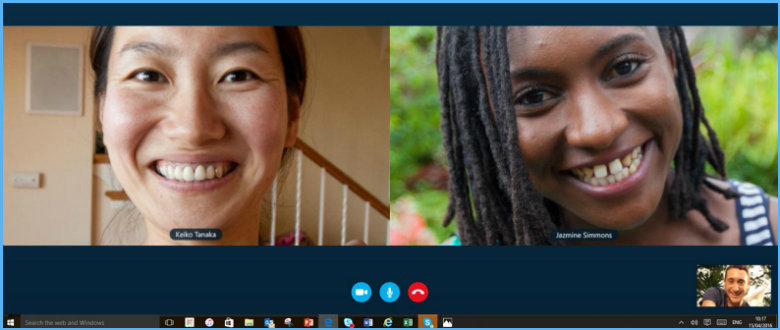Skype, the popular software that allows users to make voice and video calls between computers, mobile phones and tablet devices via the internet, has been blocked in the UAE.
According to a tweet by UAE-based telecom companies Etisalat and du, the access to Skype has been blocked over unlicensed VoIP calls.
“The access to the Skype app is blocked since it is providing unlicensed Voice over Internet Protocol (VoIP) Service, which falls under the classification of prohibited contents as per the United Arab Emirates’ Regulatory Framework,” Etisalat said earlier this week.
Skype, in a statement on its website, said, “It has been brought to our attention that our website and services have been blocked by the ISPs in the UAE. That means you won’t be able to use Skype in the UAE.”
Users across the country reported facing disruptions to the service over the weekend.
“I’m on Etisalat with a 50mbps package. I’m wired with about 54mbps of speed but I’ve noticed in the last few hours that Skype…call quality is abysmal. I can’t hear a thing,” wrote one user by the name SenpaiPlays on Reddit.
“I tried to call my only friend the Skype Echo voice thing and it didn’t work either,” wrote another user.
What does the law say?
Let’s get one thing out of the way first: Voice over Internet Protocol (VoIP) remains, technically, disallowed in the UAE.
The basic idea here is that VoIP, being an Internet-based service, carries risks related to privacy issues, voice phishing and hacking, among other vulnerabilities similar to what you can expect with anything connected to the wild, wild Web. In short, it’s ‘not safe’, so to speak.
For those sceptical about VoIP in this part of the world – highly doubtful; everyone seems to have his or her own way of using Web-based calls that are, most importantly, free – there’s another service that appears to have gained the seal of approval from UAE authorities.
Other alternatives
The nation’s two telecommunications providers, etisalat and du, have both listed a VoIP-based app, Botim, as part of their ‘unlimited’ voice and video call service. It joins C’Me, another VoIP app that has been available for some time now, as an approved service.
Sounds good. But you’ll have to fork out a monthly service fee to ‘legally’ use the service.
Both service providers have listed Dh50 and Dh100 as monthly fees: the former is for one user, while the latter is for each member of your family. The fees are automatically renewed per month. Check out etisalat’s plans here and du’s here.
Of course, both you and the party you wish to call should be using either Botim and C’Me to enjoy those endless hours of freebies.
The UAE’s Telecommunications Regulatory Authority (TRA) has stated that there has been no change in its stance with regards to VoIP, referring to its regulatory policy on the service. It falls at No. 14 on its list of prohibited Internet content.
But if you read the policy carefully, a VoIP service will be allowed in the UAE if it meets certain criteria and conditions.
Last year, when Google Duo was launched, many expected that it would be blocked in the UAE. It didn’t happen, and it functions normally to this day.
And in June of this year, WhatsApp calls surprisingly worked, albeit for only a brief period of time. The TRA clarified that it is disallowed in the UAE.
Originally published in Khaleej Times (Article by Alvin R. Cabral)



So there is no more chance to use skype in UAE forever?
Skype blocked in UAE is bad news. One can switch to alternatives like webex, R-HUB web video conferencing servers etc. They are not blocked.